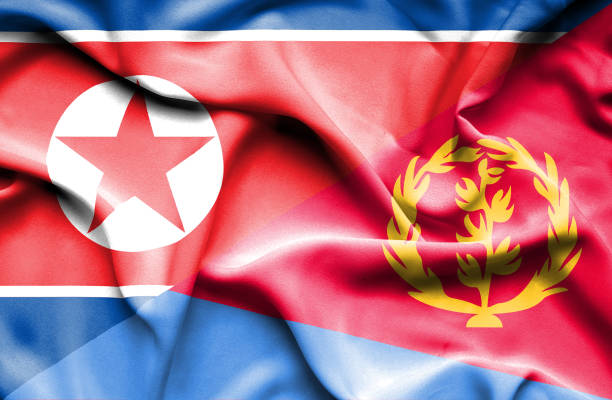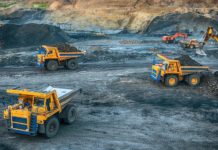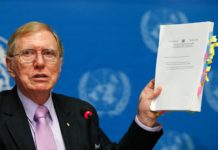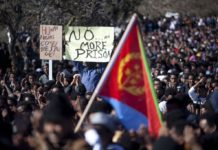How valid is the comparison between Eritrea and North Korea – sometimes described as among the most dictatorial regimes and closed societies in the world? This comparison is frequently and freely made.
The New York Times reported last month, “The impoverished African nation of Eritrea has the lowest rate of cell phone ownership in the world, less that 1 percent of its people can go online, and its journalists are so terrified of offending the president that even reporters for the state-run news media live in perpetual fear of arrest.
“In North Korea, the government prohibits almost all internet access and is so obsessive about purging inconvenient facts from the public view that it has airbrushed the leader’s uncle, executed for treason in late 2013, from all historical photo archives.”
According to the Committee to Protect Journalists, a press advocacy group in New York, “the severity of control over freedom of expression and thought in Eritrea and North Korea puts them at the top of a list of the world’s 10 most censored countries.”
Some commentators are naïve or foolish enough to believe that things “are not as bad as they seem.’’ A free weekly newsletter, Proactive Investors Australia, in its current edition, extols the virtues of Eritrea as “ an increasingly attractive address for mining investment since its independence 24 years ago with its attractive investment regime attracting 17 companies from China, Russia, UK and Australia.’’ Apart from the tedium of its repetitive prose, the publication states that Eritrea “has a stable government with an educated and disciplined work force.” Discipline, of course, can be imposed in various different ways.
Here are a dozen deadly reasons why Eritrea is described as the North Korea of Africa. The countries are similar in size but Eritrea has a population of 6 million and North Korea 25 million. Rough GDP comparisons are $544 per capita for Eritrea and $1,800 for North Korea.
- Eritrea has a self-appointed president – Isaias Afwerki – who has been in power since 1993. He was unelected. North Korea has been run by a hereditary dictatorship since the state was created in 1948. The current leader, Kim Jong Un, was unelected.
- Eritrea has a nominal political party – the People’s Front for Democracy and Justice (PFDJ). In reality it is a one-man state with almost every aspect of life dominated by Isaias. The National Assembly has not met for well over a decade and there is no ministerial power. North Korea, too, has a single party, the Korean Worker’s Party (KWP), but having been under the control of a succession of Kims, is also a one-man state.
- Eritrea has no constitution – but North Korea does have a constitution, dating back to 1972 and refreshed in 1992 and 1998.
- Both Eritrea and North Korea have fundamental philosophies of self-reliance – which, in effect, mean isolation, economic stagnation, and grinding poverty for their people.
- Freedom of worship is severely curtailed in both countries. As reported in Tricia Redeker Hepner’s book ‘’ Soldiers, Martyrs, Traitors and Exiles’’. In 2001/2 “the Government of Eritrea stepped up intervention in religious institutions in order to pre-empt their capacity to mobilise an independent public sphere.” It closed down all places of worship except Mosques, Orthodox, Catholic and Lutheran churches. Pentecostal and Evangelical churches are not allowed and continue to be ruthlessly oppressed. Organised religion is not permissible in North Korea. Religious activities are strongly discouraged and punished.
- Freedom of movement: Eritreans below their mid-forties are not allowed to leave the country and movement within the country is restricted, with frequent ID checks. Exit visas are rarely issued. In North Korea, citizens of the capital, Pyongyang, cannot travel around the country without a permit. North Koreans flee to China – thousands of Eritreans risk their lives on the perilous journey to Europe, often held indefinitely in refugee camps in atrocious conditions.
- Visa restrictions: Eritrea seldom issues entry visas – and only to those who seem to be sympathetic to the government: for example the Danish Immigration Services and the UK Government, in recent months – both desperate to stem the flow of refugees to their countries. Or, indeed, mining companies looking to make money. The Danish produced a tarnished report, later withdrawn. The BBC succeeded in sending in a team after ten years of trying. Their reported results made grim listening for the regime even though they were accompanied by government minders, sharing only what they thought the BBC should report. Similarly few foreigners penetrate North Korea – and are always accompanied by minders.
- Censorship: Eritrea was named the most censored country in the world, in April this year, for the sixth year in succession by the Committee to Protect Journalists (see above). North Korea was in second place. Reporters Sans Frontières, the media watchdog, has ranked Eritrea in its 2014 World Press Freedom Index in last place (180) for the seventh successive year. At least 30 journalists are currently imprisoned.
- Command economy: Both Eritrea and North Korea maintain rigid, centrally planned economies that direct all aspects of economic life. There is no private sector activity. North Korea is effectively a failed state. Eritrea survives on remittances from the diaspora. Both countries suffer from frequent power blackouts. Little investment reaches either country – other than Eritrea’s mining industry. Eritrea suffers from economic sanctions.
- Eritrea is on a permanent war footing with Ethiopia– which impacts more on Eritrea than Ethiopia, both economically and socially. North Korea is in a similar situation with South Korea. The leaders of both countries are driven by paranoia against their neighbours – maintaining their countries on a state of military alert.
- Conscription: Eritrea has 320,000 active and 250,000 reserve military personnel – or 10% of the entire population. All men and most women from the age of 18 to 55 are forced into meagrely paid national service. Eritrean military spending is around 21% of GDP – the highest in Africa. North Korea has 1.2 million and 600,000 active and reserve military personnel – or 7% of the entire population with spending at 16% of GDP.
- Rule of law: Arguably there is no rule of law in Eritrea with Isaias assuming the role of “judge, jury and executioner.’’ According to Human Rights Watch last year, “thousands of ordinary citizens are arrested and incarcerated without charge, trial, or opportunity to appeal and without access to family, lawyers, or independent prison monitoring organisations… most prison remain in jail indefinitely.” There are over 10,500 political prisoners in Eritrea. There are 250,000 political prisoners in North Korea spread across the country in 15 to 20 prisons.
Two countries – thousands of miles apart – but drawn together by the odious comparisons listed above. Unquestionably two of the most unpleasant regimes inhabiting today’s fractious world.
Perhaps a greater understanding of this situation would prevent mistaken directives such as the Home Office guidelines, or fatuous commentaries like the report produced by the Danish Immigration Services. Or a crass remark about the “attractiveness” of investing in Eritrea’s mining industry. Little wonder that refugees flee these two countries in their thousands.
Eritrea Focus is a Think Tank & Research organisation working with multiple non-governmental organisations to advance the democratisation of Eritrea.







